INSIDE ISSUE 19.17 | April 24, 2020
 BIG STORY: Diverse voices suggest ways to build a stronger S.C.
BIG STORY: Diverse voices suggest ways to build a stronger S.C.
VIGNETTES: How to make S.C. more resilient
NEWS BRIEFS: Census gets muted response in Palmetto State
COMMENTARY, Brack: Politicians need to stop doubletalk, listen to scientists
SPOTLIGHT: Francis Marion University
MY TURN, Loftis: Maintain good financial habits during pandemic
FEEDBACK: What do you think?
MYSTERY PHOTO: Highly decorated
S.C. ENCYCLOPEDIA: Joel Poinsett
Diverse voices suggest ways to build a stronger S.C.
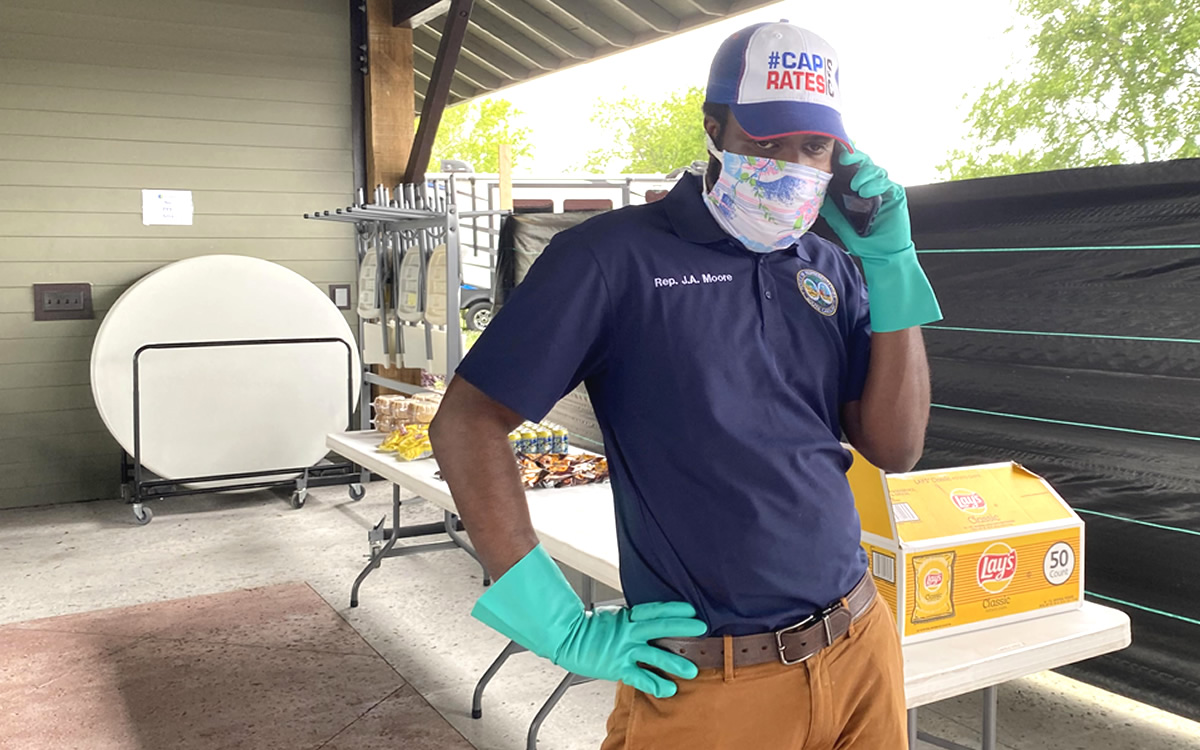
By Lindsay Street, Statehouse correspondent | Members of South Carolina’s poorest and ethnic minority communities say they can help build a more resilient state, post-pandemic.
“We’re living in a time, unfortunately, that is trying and putting to the test the fairness, the equity of all of our systems,” said Bernie Mazyck of Summerville, who serves as CEO of S.C. Association for Community Economic Development. “It should give everyone, up and down the social strata, give all of us a moment to pause and look at what we currently have, to reflect upon it and say, ‘Something’s wrong here, we need to rethink some things.’”
- In the next story, read vignettes from 10 conversations about rebuilding South Carolina
African Americans in the state are more likely than white people to die from COVID-19. Furthermore, those who have trouble accessing health care are less likely to be tested, and some of the lowest wage-earners in the state are the ones keeping essential services, such as grocery stores, running. Advocates said those at the margins have been impacted harder by the pandemic than the mostly white middle class.
According to the U.S. Census 2018 estimates, South Carolina’s blacks comprise 27.1 percent of the population. Hispanics account for 5.9 percent and Native Indians account for 0.5 percent of the population. White residents represent 68.5 percent of the population.
Not experiencing pandemic similarly
“Politics aside, take a step back and look at the people who have continually exposed themselves and families to this virus so we can have food on our table,” journalist and immigrant advocate Fernando Soto of Charleston said. “Take a step back and take it all in and realize, while we go through this pandemic together, and we’re not all in it together in the same way.”
It was a sentiment repeated by many for this story.
“Black folks and Latinos and other marginalized, low-income communities, they’re the ones on the front lines,” North Charleston Democratic Rep. J.A. Moore said. “Until we protect folks in the community I represent, not just identity-wise, then the whole state is vulnerable, the whole idea of taking care of the least of these because the least of these is who takes care of us.”
Mexican immigrant Sonia Villegas of North Charleston said while many people in the state have tried to stay home during the pandemic, many in the immigrant community have had to work.
“Unfortunately, we are people who live day-by-day and we need to work,” she said. . “There’s a lot of friends who have been able to stay home but a lot of single moms I know, they have to go out and look for the food and work every single day. If they don’t work, they can’t feed their children.”
Inequities exposed
For some, the pandemic has exposed underlying inequities and could be the start of a conversation.

“I hope we use this epidemic as a conversation to uplift issues that were already there before COVID-19 ever introduced itself to our state,” said Ashley Page of Columbia, who works as a SNAP-Ed program coordinator at the University of South Carolina.
And, they say, now is the time to listen to the communities most deeply impacted by the virus and the economic fallout.
“If you’re looking at trying to improve the conditions of people in a society, you have to look at the least of these, you have to look at those that have been historically neglected. The solutions on how we move forward have to be a bottom-up approach,” North Charleston Democratic Rep. Marvin Pendarvis said. “If you do those things in the long run you will be able to ensure prosperity.”
Sabrina Grey Wolf Creel of Walterboro, a board member of the Edisto Natchez Kusso Tribe of South Carolina, said ethnic minorities and those earning a low income offer a unique viewpoint.
“We fight a lot of different things that most people don’t fight every day,” she said. “We might be a minority but we are still here where it would have taken other people out … Low-income, minority groups, the difficulties that we face, that the average American doesn’t, is one of the strongest things that keeps us survivors.”
Republican Statehouse candidate Samuel Rivers, who is vying for his former seat held by Moore, said it isn’t just a black-and-white issue. It’s about what everyone wants.
“Everyone wants the same things: a good education, safe streets, the ability to send their children to college, financial security, good health, peace and tranquility,” Rivers said. “It’s just finding the different road maps to get there. When we do that we will come up with a balanced approach on how we can rebuild our state.”
Skepticism and hope
But the very people who were left out of the Great Depression’s New Deal and who have recovered the least since the Great Recession remain skeptical that the government can help or that any lasting change will result.
“We have had those experiences where we looked at institutions for help and we expect them to rebuild and, time and time again, black and brown people have been left behind,” Charleston’s Soto said.
Still, there is hope. Soto said he has seen a shift on social media with more people caring about the fates of low-income workers, regardless of immigration status.
Page said the time has come to do things differently.
“We always pull on the typical suspects with big education and big titles that always have the same solutions that led us to where we are now: very underprepared for an epidemic,” she said. “Let’s do something different and reach out to people who can provide a different perspective.”
- Have a comment? Send to: feedback@statehousereport.com
VIGNETTES: How to make S.C. more resilient
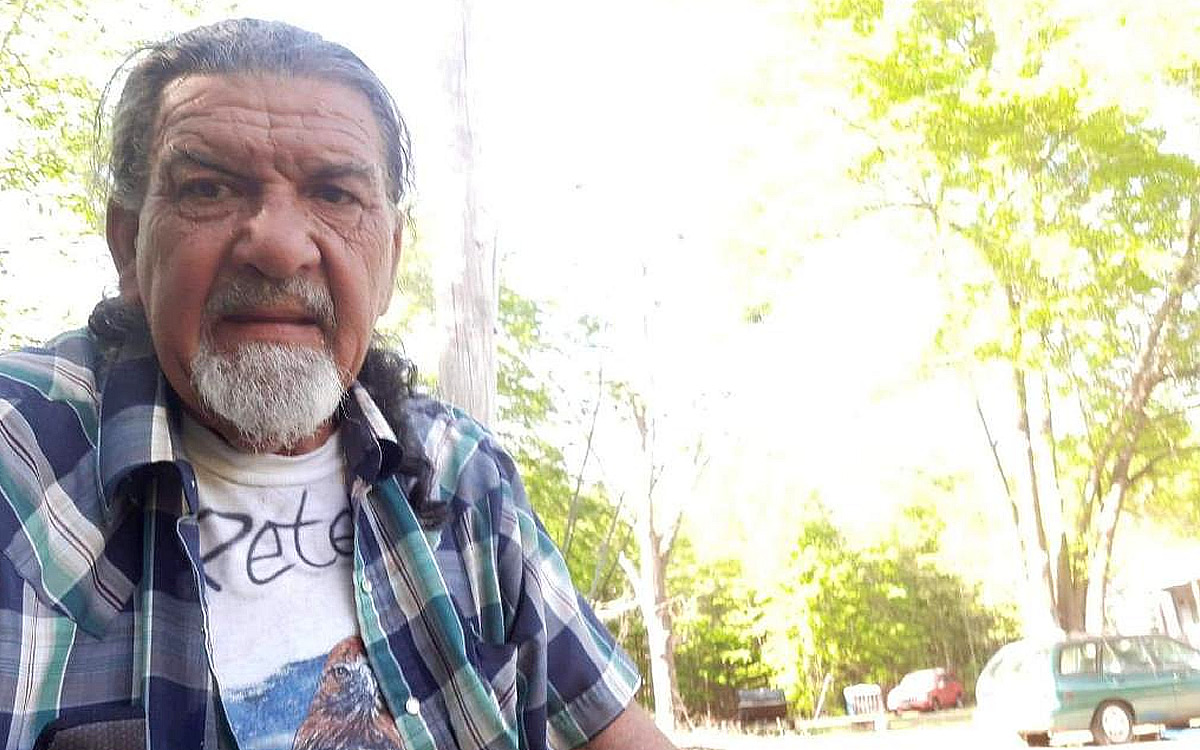
By Lindsay Street, Statehouse correspondent | As South Carolina charts a path out of the pandemic, here are some ideas from conversations with 10 people from the black, Hispanic and Native American communities for building a more resilient South Carolina.
Expanding access to health care
Gaining equal access to health care was a key concern for many.
Pee Dee Indian Tribe Chief Pete Parr of Marlboro County said the lack of a hospital in Bennettsville creates a hardship on his people and the surrounding community.
“A hospital is very important for our community and our tribe and by not having a hospital here in the Bennettsville area, it has put our people in a predicament,” he said. Rural hospital closures have been a problem in South Carolina and the nation.
Some said the state should reevaluate expanding Medicaid, an option the state has declined since 2009. Some of the states that initially declined Medicaid expansion have since expanded the federally supported service to include more people.
“The need right now, more than ever, is to expand Medicaid,” North Charleston Democratic Rep. J.A. Moore said. “Now is a time to not play politics and expand Medicaid so we can really ensure people can have the health care coverage we need.”
In addition to expanding Medicaid, Moore said state lawmakers need to do better in funding the state departments that focus on health, environment and mental health.
Journalist Fernando Soto of Charleston said people who are not insured also have difficulty in obtaining coronavirus tests. For that reason, he said, there should be skepticism when looking at S.C. Department of Health and Environmental Control’s demographic data for COVID-19, which lists 5 percent of cases as Hispanic.
“That’s very concerning because that number seems very minute,” he said. “To this day, I don’t know where anybody would go for a free test. Hispanics, by and large, have to pay for things out of pocket because they don’t have health care coverage.”
Improving education
Education for adults and children was a recurring theme.
“It takes upfront investment in our citizens. I don’t think we can commit to long-term resiliency in South Carolina without investing in how we educate our kids,” Moore said.
University of South Carolina SNAP-Ed coordinator Ashley Page of Columbia said it was ironic the legislature spent two years debating paying teachers more “and then the middle of March happened.”
“Now folks have really started to understand what teachers are going through,” she said.
S.C. Association of Community Economic Development CEO Bernie Mazyck of Summerville said South Carolina needs to rally around teachers post-pandemic.
“One of the things that’s clear from this pandemic and this shelter-in-place order that we are currently living under everyone will say teachers are gold, and as such we should pay them as the gold that they are. The General Assembly has to be forced to increase the budget for teacher pay,” he said.
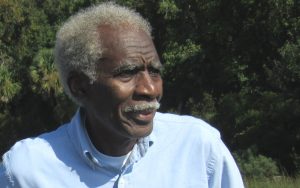
For Dr. Emory Campbell of Hilton Head Island, education needs to extend beyond traditional education, especially for minority communities.
“We strengthen them by sharing the history with them or reteaching. Allowing families to begin to learn their history and their culture and that’s how you strengthen the community, empower the community to do what they do best,” Campbell said. “The rural communities in South Carolina and the communities along the coast, what they need most is education and how-to programs.”
Campbell, retired as leader of the Penn Center on St. Helena Island,said those how-to programs should teach everything from gardening to finances. Born into the Gullah community of Hilton Head, Campbell said the community is made more vulnerable now by loss of identity and loss of skills.
“We dragged them off to work, we educated them poorly and yet they’re the ones that had the resources to develop themselves,” he said.
For some, better education came down to access to the internet.
Parr said that as the state shifted public education to online, some children in his community “have not had a lesson since they left the school house” despite the district’s attempt to provide wi-fi from buses. He said it will put his community further behind.
Soto said the immigrant community is facing a different challenge: parents are out working and cannot help children with school work, and sometimes the parents don’t speak the language or have enough education to help.
Raising the minimum wage, affordable housing
Page said she is hopeful the state government leaders will see that the minimum wage in South Carolina — $7.25 an hour, which equates to $15,080 annually at 40 hours a week — “is not enough.”

North Charleston Democratic Rep. Marvin Pendarvis echoed that comment.
“So many people in vulnerable communities, they work 9 to 5, they work minimum wage, and that’s not enough for them to take care of their children and pay rent and utilities,” he said, adding it also speaks to an affordable housing issue in the state. Both lead to financial instability for the most vulnerable, he said.
Mazyck said the pandemic has shown who the most essential and yet most underpaid workers are in the state.
“When you look at the bus drive, the Uber driver, the restaurant server, the fast food server, when you look at all of those professions the health professionals up and down the professional ranks, we now see how important those people are to our quality of life and to our economy but they’re the ones paid the least, paid on an hourly basis,” he said. “Then in order for them to live, housing is unaffordable so they oftentimes are living in substandard housing.”
Building financial preparedness
Parr of Marlboro County said his community was ill-prepared for the pandemic. Pantries are sparse in normal times and during the time of crisis, many were unable to attain the goods they needed like toilet paper, he said.
Mazyck said crises sometimes lead to low-income workers borrowing from high-interest payday or title loan lenders, a stopgap that could further undermine their financial situation.
“Those types of lenders, in a lot of cases, are predatory. They don’t build or help that customer to help them get out of that loan or build that credit rating,” he said. “As a result they fall further and further into economic dismay so we need financial systems that work so folk can access them. Some of that might require more financial education, credit counseling.”
Page said she’d like to see more support for women and minority entrepreneurs as the state moves out of the crisis.
Former GOP S.C. Rep. Samuel Rivers, who is challenging Moore for his former seat in November, said financial preparedness of the individual will help people weather storms like this better.
“People need to be a little more financially prepared for times like these,” he said. He said financial preparedness and helping some South Carolinians get out of “the renting stage” will help people become more self-reliant.
Building resiliency through faith
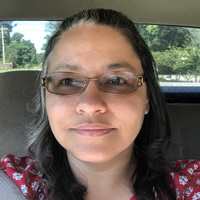
Sabrina Grey Wolf Creel of Walterboro, a tribal council board member for the Edisto Natchez-Kusso Tribe, said that she’s noticed a bright spot from the pandemic: People are spending more time with family and with God.
“The pandemic took away shopping, sports events and all these things,” she said. “It made you put back into focus the things that really matter like your family, your household, and making sure your neighbor is well taken care of as well. It’s almost like a pause in time to see where you really are.”
She said she hoped people will continue with a new perspective moving forward.
“For us to go stronger, it’s putting God back in the center of it and move forward,” Creel said. “Love your neighbor as you love yourself.”
Census gets muted response in Palmetto State

By Lindsay Street, Statehouse correspondent | What takes only minutes to complete but the results last a decade? The U.S. census. But so far, it seems participation in the 2020 census is muted due to the pandemic.
If the 2010 census was any measure, April should have been peak self-response time for the 2020 census, according to Dennis Dickerson, program manager head of the Health and Demographic Division for the S.C. Revenue and Fiscal Affairs Office, which is the lead state agency for the census.
So far, South Carolina’s self-response rate is at 46.7 percent. The final self-response rate in 2020 was 64.7 percent. After a self-response period (held either online or mail-in), census workers begin hitting the streets to gather up more responses. That secondary effort has been delayed until after June 1 in response to the pandemic.
Nationwide, there has been 50.7 percent response rate, putting South Carolina in the bottom of the self-response rate pack.
“It’s kind of an unprecedented time,” Dickerson said. “It’s taken some of the focus away from the need to finish the census.”
Census numbers matter because they are the root data for apportioning money and electoral representations for the state and federal government.
“[If numbers drop,] it certainly means a loss of federal funds because a lot of federal funds are based on population,” said West Columbia Democratic Sen. Nikki Setzler, who sits on the Senate Finance Committee. “We are encouraging everybody to sign up.”
According to the S.C. Treasurer’s Office, each year $675 billion in federal funds are distributed to state and local governments to support numerous activities that take place in South Carolina. Part of the federal funds make up about one-third of state spending.
South Carolina’s newest congressional district, coastal District 7 — drawn to accommodate the state’s growing population after the 2010 census — has the second lowest self-response rate at 39.9 percent. Only District 6 in the middle of the state fared worse with a 39.3 percent self-response rate. The congressional district with the best response rate so far was the Upstate’s District 5 at 51.4 percent.
Field data collection operations and self-response will be completed by Oct. 31. The U.S. Census Bureau said it will deliver results to the President by April 30, 2021, and redistricting data to be delivered to the states no later than July 31, 2021.
- Want to complete the census? Click here.
In other news:
McMaster debuts accelerateSC. Gov. Henry McMaster announced Monday the creation of accelerateSC, a coordinated economic revitalization planning team involving more than 30 small and large business owners, leaders in manufacturing, healthcare professions, education professionals, and local government officials. The team met for the first time Thursday as McMaster and other state leadership seeks a way forward post-pandemic. See who’s on the team here.
Public schools closed through spring semester. McMaster announced Wednesday that public schools will be closed through the remainder of the 2019-2020 school year. To see how public school teachers have adapted to classes online, read this story from the Charleston City Paper.
High number of marijuana arrests in S.C. As the state legislature has stumbled to legalize medical marijuana or decriminalize recreational marijuana, South Carolina has become a hot spot for racially disparate arrests for possession. Read the full story here.
- Have a comment? Send to: feedback@statehousereport.com
 Friends and readers,
Friends and readers,
We’re proud to offer Statehouse Report for free. For more than a dozen years, we’ve been the go-to place for insightful independent policy and political news and views in the Palmetto State. And we love it as much as you do.
But now, we can use your help. If you’ve been thinking of contributing to Statehouse Report over the years, now would be a great time to contribute as we deal with the crisis. In advance, thank you.
— Andy Brack, editor and publisher
Politicians need to stop doubletalk, listen to scientists

By Andy Brack, editor and publisher | The right mouth of government obviously has no idea what the left mouth is saying. And because government can’t get its message straight, we’re all confused.
 On one hand, Gov. Henry McMaster says some businesses can now open in South Carolina, although it’s no clearer why a craft shop or a florist is “essential” in the curious way a gun shop has been for the last few weeks. Grocery stores we understand. But gun shops?
On one hand, Gov. Henry McMaster says some businesses can now open in South Carolina, although it’s no clearer why a craft shop or a florist is “essential” in the curious way a gun shop has been for the last few weeks. Grocery stores we understand. But gun shops?
Meanwhile, the governor says no to opening schools (good idea, finally). But wait: It’s also OK suddenly to go to boat landings, some beaches and, soon, state parks. Yet people are still being told by state and national officials to stay at home, stay separated, maintain social distance and to not congregate.
What the hell?
None of this doubletalk makes much sense. As one local official stated what’s pitifully obvious, it’s not “intelligent or coherent by any means.”
The coronavirus crisis certainly is nothing we’ve ever seen and no one seems to have been prepared for it. So maybe all of the confusion just stems from all of the politicians making it up as they go along.
With McMaster, the best we can figure is he is highly attuned to whether there is even a hint of “liberating” South Carolina while he’s in charge. In fact, his ears appear to be closer to right wingers at home than to how his nose has been firmly stuck to the backside of his buddy, President Donald Trump, star performer and daily media briefer who is using the coronavirus crisis to feather the nest of his gargantuan narcissism.
Trump is the worst of the double talkers. He started the week of April 13 by bombastically asserting he had ultimate authority on when the nation should reopen for business in light of coronavirus. Four days later, he backed down when he said the nation’s governors were responsible for when and how individual states should get back to business. Maybe he was off his meds.
But the next day, April 17, he was back, red-faced and vitriolic, acting like no American president in history. After reading reports of his previous day’s capitulation, Trump lashed out, encouraging right-wing protesters to “liberate” Michigan, Minnesota, and Virginia, three states with Democratic governors, from coronavirus regimens put in place to protect people. And this led to national headlines about how he was inciting resistance against governors.
Washington Gov. Jay Inslee, a Democrat, reacted with much frost to Trump’s flip-flop. “The president is fomenting domestic rebellion and spreading lies even while his own administration says the virus is real and is deadly, and that we have a long way to go before restrictions can be lifted,” he said.
Anyone familiar with the president’s ongoing lies and pandering should have seen his turnabout coming from 10 miles away. Repeatedly during this crisis of monstrous proportions, he’s done only one real thing consistently: He’s displayed a continuing lack of leadership. Rather than set reasonable courses of action, he wings it in daily briefings better left to scientists. Rather than soothe the nation, he incites red against blue when the disease doesn’t care which political party the next victim belongs to.
All of this doubletalk is just plain confusing. It doesn’t help that some in the media are part of the problem. Fox News is little more than a national network of propaganda that disseminates unrest over stories about how people are coping. And locally, some South Carolina television stations interrupt local news broadcasts to showcase the president’s press conferences, also known as unpaid campaign commercials.
South Carolina and national leaders need to start listening to scientists. They need to make sure what they do is best for everyone suffering in social isolation and in the pandemic. Yes, we need businesses to reopen. But not until it’s safe to do so.
Thank goodness for leadership by the nation’s scientists and doctors. They’re proving to be the real heroes of the coronavirus crisis. In the days ahead, do what you can to thank health care professionals, first responders and frontline public servants working to keep our communities safe. They need more love than they’re getting.
- Have a comment? Send to: feedback@statehousereport.com.
Francis Marion University
The public spiritedness of our underwriters allows us to bring Statehouse Report to you at no cost.
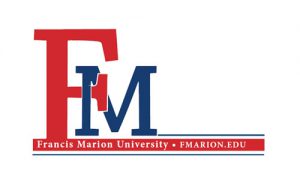 We’re happy this week to shine our spotlight on Francis Marion University, a public university located in Florence, S.C. It was founded in 1970 with a mission to provide the people of the Pee Dee, and of South Carolina, with high quality, yet accessible, university education. FMU has stayed true to that mission for nearly 50 years. In any given year, more than 95 percent of the university’s students are South Carolinians, and FMU is, by most measures, the most affordable college in the state.
We’re happy this week to shine our spotlight on Francis Marion University, a public university located in Florence, S.C. It was founded in 1970 with a mission to provide the people of the Pee Dee, and of South Carolina, with high quality, yet accessible, university education. FMU has stayed true to that mission for nearly 50 years. In any given year, more than 95 percent of the university’s students are South Carolinians, and FMU is, by most measures, the most affordable college in the state.
Francis Marion University is, of course, named for Revolutionary War hero, General Francis Marion, who was nicknamed “The Swamp Fox” for his uncanny ability to use terrain, local knowledge and just plain old South Carolina common sense to outfox the British. Today, FMU prides itself on providing a strong liberal arts education for its 4,000 students, while at the same preparing them for careers in a broad range of fields.
The University offers professional schools in health care, education and business, as well as graduate programs in business, education and psychology. FMU’s new School of Health Sciences is adding new programs, designed to help deliver critical medical services to the community, on an almost annual basis, so great is the demand by students and the need in our region and state. Recent undergraduate additions to the University as a whole include Health Care Management and Industrial Engineering. The latter, just begin in 2014, is already one of the fastest-growing majors on campus.
The campus is situated on over 400 wooded acres of beautiful foliage and landscaping. A significant campus presence in historic downtown Florence is also developing. FMU’s Performing Arts Center is located there along with the Carter Center for Health Sciences, and the FMU Recording Studio, The University recently acquired more downtown property near the Carter Center, which will help support future academic expansions.
FMU has managed to grow while at the same time providing South Carolinians with, as noted, an affordable university education. FMU’s total net cost — tuition plus room, board and other fees, less scholarships and grants awarded — is South Carolina’s lowest, and by a considerable margin, according to calculations performed by a third party, CollegeFactual.com. FMU has managed this unusual balance of quality and affordability by avoiding capital debt, minding administrative costs carefully, and developing a culture of giving among its many friends and supporters in the Pee Dee and beyond.
- To learn more about Francis Marion, visit online at fmarion.edu.
Maintain good financial habits during pandemic

By State Treasurer Curtis Loftis | It’s no secret that money has a significant influence on our lives. While this is frequently made obvious in our daily routines, nothing underscores that sentiment quite like the current crisis.

The emergence of COVID-19 has resulted in a societal spike of anxiety and fear, with many Americans rightfully concerned about their health during this time. Weighing just as heavily on our minds, though, are the economic consequences we are being confronted with.
April is the national observance of Financial Literacy Month, a time to reflect on the benefits of good financial habits. As we continue to adapt to this current situation, I would like to remind you of a few important steps you can take to provide peace of mind and ensure your financial well-being.
Stick to your budget
Now is not the time to make impulse purchases or go crazy with internet shopping just because you’re cooped up at home and adjusting to this “new normal.” In fact, you can easily make the case for reducing your consumer tendencies in favor of covering only your main necessities of food, shelter, utilities and transportation in the weeks ahead.
If you don’t have a budget, now is the perfect time to create one. There are numerous apps you can download on your phone to help you stay the course, like popular options Mint, Clarity Money or EveryDollar. Alternatively, if you’re not tech-savvy, you can follow guidelines from reputable organizations like the Consumer Financial Protection Bureau and make your own budget or print out ready-to-use templates.
Saving is still important
Whether you have an emergency fund of a few hundred dollars or enough to cover you for several months, saving is still an important financial habit. Much like working out at the gym, you need to commit to the same type of muscle memory by making a conscious effort to continue saving, even during times like this. Whether you’re receiving a tax refund or a stimulus rebate, try and put a percentage into your savings if you can cover your other monthly expenses and have money left over.
If you are fortunate to have a healthy savings reserve, then consider putting some excess funds into a college savings account, like Future Scholar, or a Palmetto ABLE® savings account, if you have a loved one with a disability. This will make a difference down the road and provide a tax deduction opportunity for your South Carolina tax return.
Adjust when the time is right
When things stabilize, be ready to go back to paying off debt, investing in your future retirement or supporting the needs of your loved ones. For those concerned about market volatility, schedule time to meet with your financial advisor to reassess your risk-reward tolerance and look for opportunities to lessen your exposure to market fluctuations.
Consider sharing the lessons you’ve learned
While remote learning has been an adjustment for most families, this time presents a great opportunity to discuss personal finance with your children who are studying from home. Talking them through the basics of creating and sticking to a budget, the importance of saving and the pros and cons of taking on debt are valuable life lessons that will help them to become financially responsible young adults. There are a number of free resources available to initiate a conversation with your child about personal finance in a fun, easy to understand way.
It is hard to believe that in 2020 only 29 percent of Americans say they are financially healthy. Just as we challenge consumers to adapt their financial habits, this challenges us as a community, state and nation to adapt our approach to financial education and make it a higher priority. Imparting lessons like these upon our residents is not limited to just one month out of the year. We must continually invest in our most valuable asset – our people. By doing so, our return will be greater than anything else: a financially-capable and confident South Carolina.
Curtis Loftis is state treasurer for South Carolina.
What do you think?
We love hearing from our readers and encourage you to share your opinions. But you’ve got to provide us with contact information so we can verify your letters. Letters to the editor are published weekly. We reserve the right to edit for length and clarity. Comments are limited to 250 words or less. Please include your name and contact information.
- Send your letters or comments to: feedback@statehousereport.com
Highly decorated
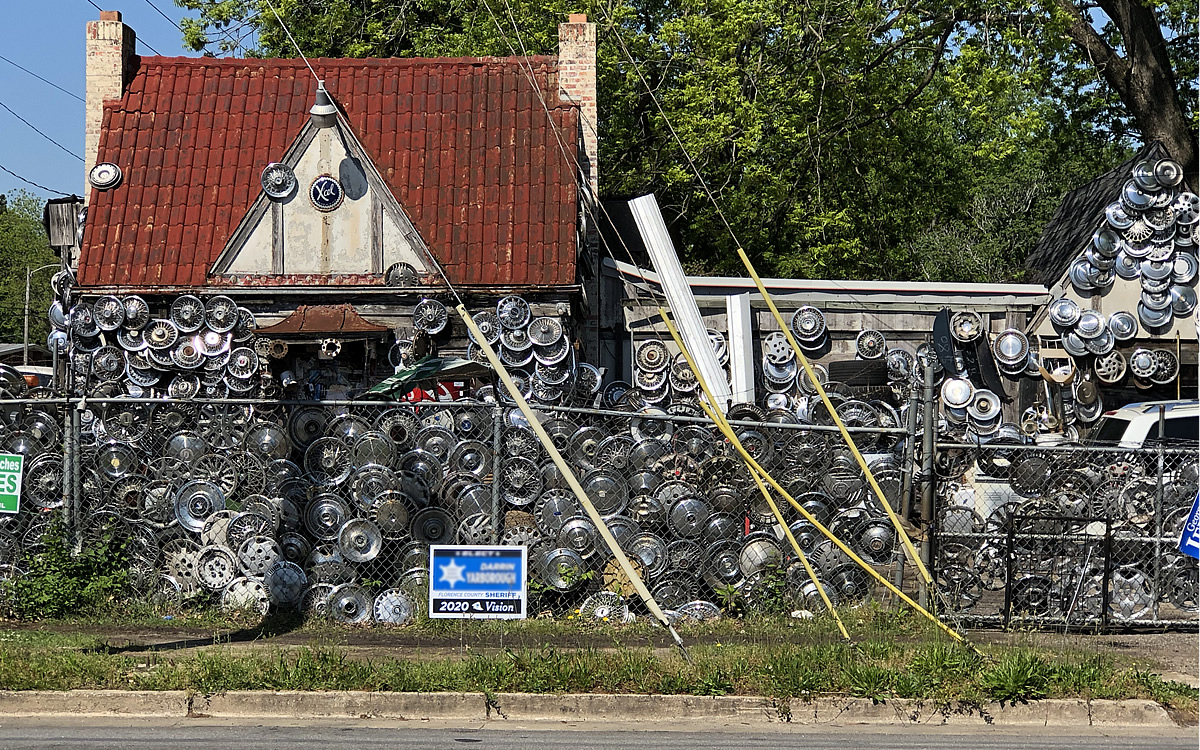
Here’s a building that is, how should we put it, “highly decorated.” Where is it? Bonus: Why? Send your best guess to feedback@statehousereport.com. And don’t forget to include your name and the town in which you live.
Our previous Mystery Photo
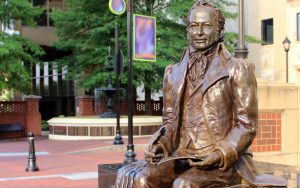 Our April 17 image, “Happy bronze,” is a statue of Joel Poinsett that is located along Main Street in downtown Greenville. A former U.S. minister to Mexico under President James Monroe, he introduced the poinsettia plant from that region into the United States.
Our April 17 image, “Happy bronze,” is a statue of Joel Poinsett that is located along Main Street in downtown Greenville. A former U.S. minister to Mexico under President James Monroe, he introduced the poinsettia plant from that region into the United States.
Congratulations to the many sleuths who correctly identified the sculpture: Craig Jacobs of Spartanburg; Craig White of Greenwood; George Graf of Palmyra, Va.; Philip Cromer of Beaufort; Daniel Brennan, Mary Greene and Jay Altman, both of Columbia; Dale Rhodes of Richmond, Va.; Frank Bouknight of Summerville; Joe Waters of Blowing Rock, N.C.; David Lupo of Mount Pleasant; Bill Segars and Don Clark, both of Hartsville; Steve Willis of Lancaster; Kevin Mertens and Emily Moss, both of Greenville; Taft Matney of Mauldin; and Barry Wingard of Florence.
More about Poinsett is in today’s S.C. Encyclopedia.
- Send us a mystery: If you have a photo that you believe will stump readers, send it along (but make sure to tell us what it is because it may stump us too!) Send to: feedback@statehousereport.com and mark it as a photo submission. Thanks.
Joel Poinsett
Joel Roberts Poinsett was born on March 2, 1779, in Charleston, son of the Huguenot physician Elisha Poinsett and his English wife, Ann Roberts. As a child, Poinsett spent six years in England, where his formal education probably began. In 1794 he entered the Greenfield Hill, Connecticut, academy of Dr. Timothy Dwight but stayed only two years because of his frail health. Returning to England, Poinsett attended private school at Wandsworth, where he excelled in languages. In 1797 he began medical school in Edinburgh, Scotland, but remained only one year. Returning to Charleston, Poinsett briefly studied law in 1800, but his interest quickly waned. In 1801 Poinsett set out for Europe, where he would spend most of the next seven years traveling across the continent. His fluency in foreign languages helped him form associations with several powerful European leaders, including Napoleon I, the French financier Jacques Necker, and Czar Alexander I of Russia.
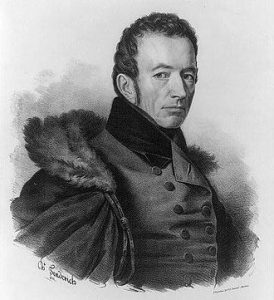
Poinsett returned home in 1808 as war between Britain and the United States loomed. He hoped to secure a military appointment but instead in 1810 was named U.S. trade envoy to South America, where British forces regarded him as a “suspicious character.” An ardent republican who long wanted a military career, Poinsett was soon promoting rebellion among South American countries. Failing to persuade Buenos Aires to break with Spain, in 1811 he crossed the Andes to Chile. Despite Washington’s neutrality, Poinsett urged Chile to rebel and helped organize an army. But by 1814 Royalists had crushed the rebellion, and he was forced to flee.
Returning to South Carolina, Poinsett was elected in 1816 to the General Assembly, where he became a strong advocate of internal improvements. In 1819 Poinsett became president of the state Board of Public Works, actively supervising canals and roads built to link Charleston with the undeveloped interior, including a road through the Saluda Gap that brought trade from North Carolina and Tennessee.
In 1821 Poinsett won a seat in Congress, where he represented the Charleston congressional district until 1825. Although he seldom participated in floor debates, Poinsett opposed tariff increases, supported expansion of the military, and favored recognition of South American republics. In 1825 President James Monroe appointed Poinsett as the first U.S. ambassador to Mexico. Britain’s influence there was strong, and Poinsett urged independence from Europe under America’s Monroe Doctrine. He tried unsuccessfully to purchase Texas for the United States, thereby antagonizing Mexico. He failed to win a commercial treaty but succeeded in promoting trade along America’s southwestern border. His meddling in local political affairs made him unpopular in Mexico, especially among British commercial interests and the country’s monarchists. The Mexican government requested his recall, and Poinsett left the country in January 1830.
Poinsett returned to South Carolina at the height of the nullification crisis and eventually became one of the state’s leading Unionists, even serving as President Andrew Jackson’s confidential local agent in opposing the nullifiers and secretly organizing Unionist militias. Poinsett’s efforts were praised in the North, but his influence in South Carolina waned before the states’ rights doctrine put forth by his political nemesis, John C. Calhoun. After the crisis ended, on October 24, 1833, Poinsett married Mary Izard Pringle, the widow of a wealthy rice planter. The marriage produced no children.
In 1837 President Martin Van Buren named Poinsett secretary of war. He quickly set out to improve and expand the nation’s paltry army of eight thousand poorly trained soldiers. He raised standards and sent officers to Europe for instruction. His artillery improvements made him one of America’s foremost nineteenth-century military reformers. In 1838 Congress enlarged the army to 12,577 men. As secretary, Poinsett also presided over removal of more Indians from east of the Mississippi than any other of his predecessors. In an 1841 report, Poinsett said that 40,000 Indians had been pushed west of the Mississippi. He also encouraged exploration, authorizing the western expedition of John C. Fremont and Jean Nicollet as well as the Pacific voyages of Charles Wilkes.
Leaving office in March 1841, Poinsett spent his last decade on his Greenville District farm and his wife’s Santee plantation near Georgetown. In retirement, he promoted education, economic development, and weaning of southern life from slavery. In 1844 Poinsett was elected president of the National Institute, a forerunner of the Smithsonian Institution. He served on the board of visitors of South Carolina College. He studied animal husbandry, agriculture, and botany. A red-leafed plant he introduced from Mexico, the poinsettia, was named in his honor. When secession again threatened the nation in 1850, Poinsett’s friends sought his leadership in opposing the movement, but he declined. Poinsett died in Stateburg on December 12, 1851, while traveling from Charleston to his Greenville home. He was buried in the cemetery of the Church of the Holy Cross, Stateburg.
— — Excerpted from an entry by James T. Hammond. This entry may not have been updated since 2006. To read more about this or 2,000 other entries about South Carolina, check out The South Carolina Encyclopedia, published in 2006 by USC Press. (Information used by permission.)
ABOUT STATEHOUSE REPORT
Statehouse Report, founded in 2001 as a weekly legislative forecast that informs readers about what is going to happen in South Carolina politics and policy, is provided to you at no charge every Friday.
Meet our team
- Editor and publisher: Andy Brack, 843.670.3996
- Statehouse correspondent: Lindsay Street
Buy the book
Now you can get a copy of editor and publisher Andy Brack’s We Can Do Better, South Carolina! ($14.99) as a paperback or as a Kindle book ($7.99). . The book of essays offers incisive commentaries by editor and publisher Andy Brack on the American South, the common good, vexing problems for the Palmetto State and interesting South Carolina leaders.
More
-
- Mailing address: Send inquiries by mail to: 1316 Rutledge Ave., Charleston, SC 29403
- Subscriptions are free: Click to subscribe.
- We hope you’ll keep receiving the great news and information from Statehouse Report, but if you need to unsubscribe, go to the bottom of the weekly email issue and follow the instructions.
- © 2020, Statehouse Report, a publication of City Paper Publishing, LLC. All rights reserved.
- Read our sister publications: Charleston City Paper (every Wednesday) | Charleston Currents (every Monday.


